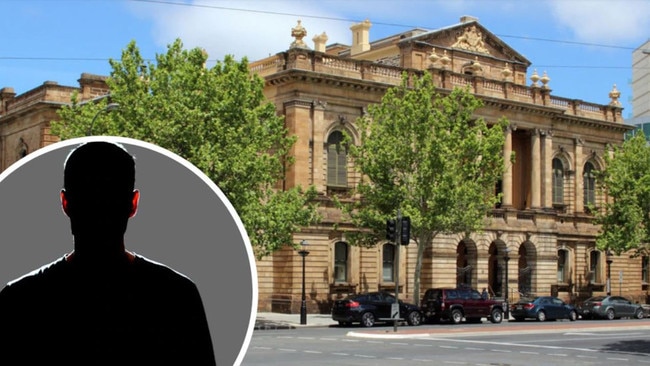Alleged Adelaide ‘sex pest’ barrister case secrecy ‘undermines justice system’, top judges told
Justice would be “undermined” if secrecy orders protecting a barrister accused of sexual misconduct against a junior female colleague are not lifted, SA’s top judges have heard.

SA News
Don't miss out on the headlines from SA News. Followed categories will be added to My News.
Confidence in South Australia’s justice system would be “undermined” if a barrister accused of sexual misconduct against a junior female colleague was allowed to keep his identity a secret, a court has heard.
Frances Nelson KC, for Legal Profession Conduct Commissioner Anthony Keane, told three of SA’s top justices that keeping the name of the accused barrister hidden should not be done “lightly” and could set a dangerous precedent.
“The commissioner’s position is, unless there are some compelling and special reasons there should be open court, and disciplinary proceedings should be heard and subject to public scrutiny and transparency,” Ms Nelson said.
“Failure to do so will undermine, or potentially undermine, public confidence in the system.”
During final argument last week before the Court of Appeal, Dick Whitington KC for the accused barrister – who cannot be legally named – continued a submission to have his identity remain secret as he disputed professional misconduct charges laid by the LPCC in 2022.
The details of the hearing can be reported after a court-imposed secrecy order was revoked on Friday, which had stopped any details from being published.
During the landmark hearing on Thursday, September 19, Chief Justice Chris Kourakis said opposition to Mr Whitington’s submissions would include the public wanting to “let the light in”.
“An argument could be made that it is in the interest of justice in the general working of these professional disciplinary regimes to let the light in and let people know so they can make their choices, make informed choices about the practitioners they will consult or brief,” Chief Justice Kourakis said.
“Mr Whitington, there is a debate about … the extent to which private conduct affects someone’s fitness for office, and different members and sections of the community have different views about that.”
Chief Justice Kourakis said the modern legislative provisions to remain in open court “stand in stark contrast” from prior historical practices of dealing with tribunal matters “behind closed doors”.
The lawyer, who denies wrongdoing and is not charged with any crimes, allegedly made “inappropriate and uninvited physical and sexual contact … or advances” to a young solicitor in 2020.
The court previously heard his secrecy attempts came despite the disciplinary charges being published and colleagues knowing his identity, meaning “the cat’s out of the bag”.
It further heard if his name was published, the allegations could be “potentially very damaging” and cause “professional or personal harm” to the practitioner.
Mr Whitington – who previously argued he wasn’t seeking a suppression order but wanted the identity kept secret through other civil means – said the context of the allegations was important.
“There is a line between conduct which is in a social context, and conduct which is not and further question about how conduct in a social context might bear upon a fitness to practise,” Mr Whitington said.
Supreme Court Chief Justice Kourakis, Justice Laura Stein and Justice Chris Bleby have reserved their judgment, which will be handed down at a later date.
More Coverage
Originally published as Alleged Adelaide ‘sex pest’ barrister case secrecy ‘undermines justice system’, top judges told






